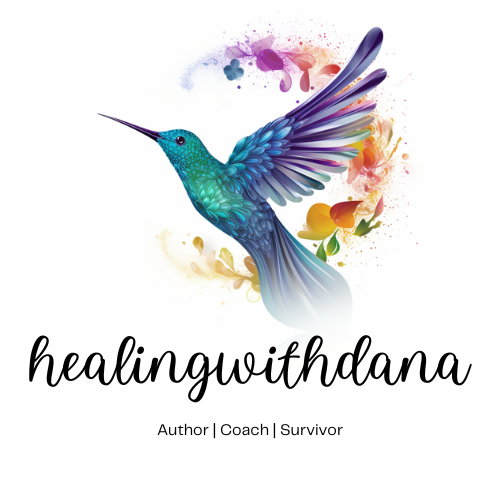Narcissistic abuse is a term that might sound rather specific, but its implications can be broadly and deeply felt by those who’ve experienced it. If you’re reading this, chances are, you’ve had a brush with someone whose behavior patterns leaned heavily into narcissism, and you’re seeking avenues to heal, understand, and move forward. The good news? You’re not alone, and there are numerous resources to guide you on this healing journey. Here’s a curated list to help you navigate your way through.
1. Books
Literature has a way of resonating with us, offering solace, insights, and strategies all wrapped up in pages we can revisit anytime. When it comes to narcissistic abuse, a couple of noteworthy mentions are:
- “Psychopath Free” by Jackson MacKenzie: A guide to recognizing and moving on from emotionally abusive relationships.
- “Healing from Hidden Abuse” by Shannon Thomas: This dives into the unseen scars left by emotional and psychological abuse.
- “Emotional Blackmail” by Susan Forward – A classic on recognizing and overcoming manipulative and abusive relationships. It helps identify different types of emotional blackmail and set healthy boundaries.
- “Why Does He Do That?” by Lundy Bancroft – This book gives insights into the mindset of abusers and how to stay safe. Bancroft was a counselor for abusive men so he draws from real cases.
- “The Verbally Abusive Relationship” by Patricia Evans – Focuses on verbal abuse and how it chips away at one’s self-esteem over time. Provides strategies to cope and exit such relationships.
- “Should I Stay or Should I Go?” by Lundy Bancroft – A practical guide for those in an abusive relationship who are unsure whether to leave or stay. Helps weigh options and safety plan.
- “Toxic Parents” by Susan Forward – Addresses how emotional damage from one’s childhood impacts adult relationships and life. Provides parenting techniques to break the cycle.
- “The Emotionally Abusive Relationship” by Beverly Engel – Written from a psychological perspective, this book explores dynamics of abuse and the gradual erosion of one’s sense of self.
- “The Narcissist in Your Life: Recognizing the Patterns and Learning to Break Free” by Julie L. Hall – This book provides an informative overview of narcissistic personality disorder and helps the reader identify if they are in a relationship with a narcissist.
2. Therapists Specializing in Emotional Abuse
Seeking professional guidance can be pivotal. A therapist well-versed in narcissistic abuse can offer tailored coping strategies and insights. Do some research, check reviews, or ask for recommendations to find someone who resonates with you.
A great place to find a therapist in your state is https://www.psychologytoday.com/us/therapists
You can also filter therapists in your area by “Issues” Click “Narcissistic Personality (NPD)” or “Trauma and PTSD”
Yes, trauma. If you have been in a relationship with a narcissist and suffered emotional and/or physical abuse then you could have complex PTSD, depending on how you’ve been able to process and cope with the abuse.
3. Support Groups
The adage, “strength in numbers,” holds true here. Being part of a support group, whether local or online, can provide a sense of belonging. Shared experiences, collective insights, and the knowledge that you’re not alone can be immensely therapeutic.
You can find a support group to join by calling a therapist in your area to ask if they know of one you can join, or by going online and finding a safe private Facebook group. Check out my “Support Group” section too for upcoming group openings. Don’t see it? Feel free to message me and inquire about when the next one will be.
4. Educational Websites and Blogs
The digital age has blessed us with a plethora of online resources. Websites like Out of the Fog, Narcissist Family Files and this one shed light on narcissistic behaviors and offer coping mechanisms.
- Psych Central (PsychCentral.com) – Reliable mental health site with sections devoted to narcissistic abuse recovery, including learning about narcissistic traits and getting support.
- Mental Help (MentalHelp.net) – Run by experienced clinicians, they have informative articles about recognizing narcissistic abuse, its effects, and paths to healing.
- Mayo Clinic (MayoClinic.org) – Trusted source that defines narcissism and its impact, including checklists to assess a partner’s behavior and advice for moving forward.
- The National Domestic Violence Hotline (TheHotline.org) – Provides live support services over the phone and through their online chat if physical abuse is also involved in the relationship.
5. YouTube Channels and Podcasts
For those who prefer listening over reading, channels like Dr. Ramani Durvasula‘s offer profound insights into narcissistic behaviors. Similarly, The Little Shaman Healing podcast delves deep into the intricacies of dealing with narcissists.
6. Healing Workshops and Retreats
Immersive experiences can sometimes jumpstart the healing process. Workshops and retreats, while an investment, provide an environment wholly dedicated to understanding, healing, and self-growth.
7. Journaling and Self-Reflection
The age-old practice of putting pen to paper. Journaling offers a space to vent, reflect, and understand your feelings. The act of writing can be therapeutic in itself, not to mention the clarity that emerges from organizing your thoughts.
8. Mobile Apps
In our tech-savvy era, healing has gone digital. Platforms like BetterHelp and Talkspace connect users with professional therapists. Meanwhile, meditation and mindfulness apps can guide you in grounding exercises and mental wellness practices.
9. Meditation and Mindfulness Practices
Meditation is a powerful tool in healing from emotional trauma. Embracing mindfulness allows one to be present, recognize triggers, and develop healthier responses. Look for guided meditations tailored for emotional healing to get started.
10. Webinars and Online Courses
Expand your understanding through structured online courses. Want to engage in an online course using journal therapy for healing? Sign up here to be notified when the next course is open: https://healing-with-dana.ck.page/healingcourse
Healing from narcissistic abuse is a journey—one that might feel challenging, isolating, and overwhelming at times. But remember, resources abound, and support is available in myriad forms. Equip yourself, lean on these resources, and know that with time, understanding, and the right tools, the journey to reclaiming your emotional well-being is entirely within reach.

